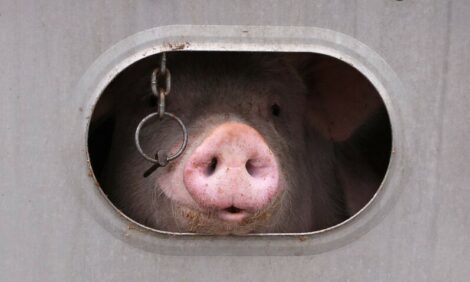



Smithfield given approval to acquire rival Premium Standard Farms
US - The Department of Justice's Antitrust Division issued the following statement after the Department announced the closing of its investigation of the proposed acquisition by Smithfield Foods Inc. of Premium Standard Farms Inc."After a careful investigation of Smithfield's proposed acquisition of Premium Standard Farms, the Antitrust Division determined that the merged firm is not likely to harm competition, consumers or farmers.
"The Division's investigation of the merger of these pork packers and processors focused on fresh and processed pork, the purchase of hogs from farmers, and the purchase of services from farmers who raise hogs owned by the merging parties. Based on the evidence obtained during its extensive investigation, the Division found that the merged firm would continue to face significant competition in the sale of fresh and processed pork from its national competitors Tyson, Swift, Excel/Cargill, Hormel and Seaboard Foods. Additionally, farmers who sell hogs or hog-raising services to the merged firm would have competitive alternatives that would deter the merged firm from lowering prices paid to the farmers. Although this particular acquisition is not likely to harm competition, the Antitrust Division will continue to be vigilant in its enforcement of the antitrust laws with respect to any further proposed consolidation in this area."
Background
Smithfield Foods Inc., based in Smithfield, Virginia, is the largest hog producer and the largest pork packer and processor in the United States with annual revenues exceeding $11 billion. Smithfield has pork packing plants in Iowa, South Dakota, Nebraska, Illinois, North Carolina and Virginia.
Premium Standard Farms Inc., based in Kansas City, Mo., is the second- largest hog producer after Smithfield and the sixth-largest pork packer and processor in the United States with annual revenues of about $900 million. Premium Standard Farms has pork packing plants in Missouri and North Carolina.
The Division's review focused on the following potential effects:
The Division examined the extent to which the merger would likely affect competition in the sale of fresh and processed pork. The Division found that such products are shipped throughout the country and that there are a large number of pork packers -- Tyson, Swift, Excel/Cargill, Hormel and Seaboard Foods -- that compete on a national basis against Smithfield and Premium Standard Farms in the sale of fresh and processed pork.
Furthermore, the Division found that a new competitor, Triumph Foods, recently entered the pork packing market. The Division concluded that the acquisition is unlikely to harm consumers of fresh and processed pork.
The Division also considered the extent to which the transaction would allow the merged firm to lower prices paid to farmers in the Midwest who sell hogs or hog-raising services to the merging parties. The Division found that, if the merged firm tried to lower prices, independent farmers in the area who grow their own hogs would ship, or credibly threaten to ship, them to numerous packing plants other than those owned by the merging parties including to facilities owned by Cargill, Tyson and Hormel. Also, farmers who contract with Smithfield and Premium to raise hogs would switch, or credibly threaten to switch, to sell their services to other companies. Therefore, the Division concluded that the acquisition is not likely substantially to lessen competition in the Midwest.
Finally, the Division considered the same issues with respect to the merged firm potentially lowering prices paid to farmers in North Carolina, South Carolina and Virginia -- an area in which Smithfield and Premium own three of the four pork-packing plants. Despite the two companies' high share of pork-packing capacity in the area, the Division found that any attempt by the merged firm to lower prices paid -- either to farmers who sell market- weight hogs or to contract farmers who raise hogs for the merging parties -- would likely be unsuccessful. First, independent farmers currently ship, and have the ability to increase shipments of, market-weight hogs to plants outside the three states as well as weaner and feeder pigs -- younger hogs that are lighter than market-weight hogs -- to other states in the Midwest for finishing and slaughter. Second, contract farmers currently retained by Smithfield and Premium would switch, or credibly threaten to switch, to other firms that need hog-raising services, such as independent producers who own hog production operations in the area. Therefore, the Division concluded that the acquisition is not likely substantially to lessen competition in this area.
The Division provides this statement under its policy of issuing statements concerning the closing of investigations in appropriate cases. This statement is limited by the Division's obligation to protect the confidentiality of certain information obtained in its investigations. As in most of its investigations, the Division's evaluation has been highly fact- specific, and many of the relevant underlying facts are not public. Consequently, readers should not draw overly broad conclusions regarding how the Division is likely in the future to analyze other collaborations or activities, or transactions involving particular firms. Enforcement decisions are made on a case- by-case basis and the analysis and conclusions discussed in this statement do not bind the Division in any future enforcement actions.







